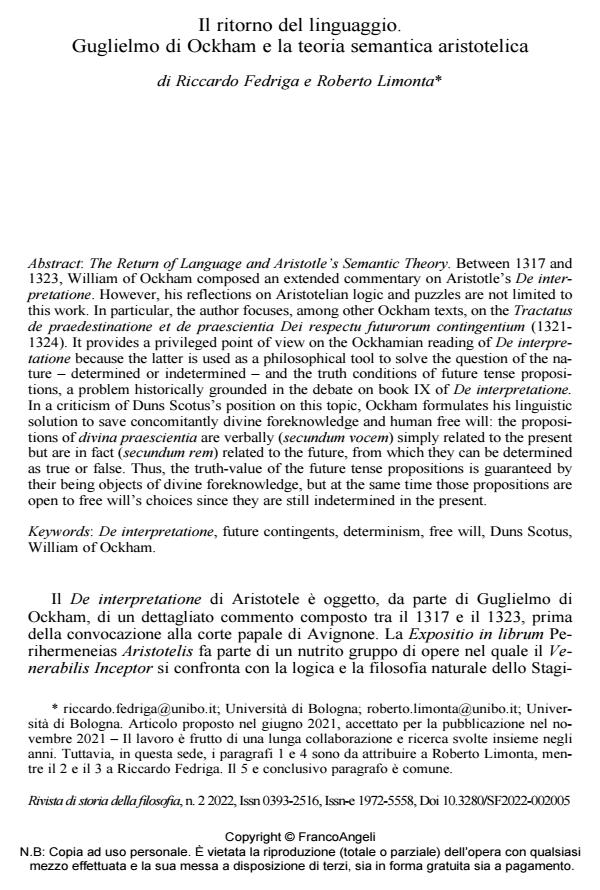The Return of Language and Aristotle’s Semantic Theory.
Journal title RIVISTA DI STORIA DELLA FILOSOFIA
Author/s Riccardo Fedriga, Roberto Limonta
Publishing Year 2022 Issue 2022/2
Language Italian Pages 27 P. 273-299 File size 274 KB
DOI 10.3280/SF2022-002005
DOI is like a bar code for intellectual property: to have more infomation
click here
Below, you can see the article first page
If you want to buy this article in PDF format, you can do it, following the instructions to buy download credits

FrancoAngeli is member of Publishers International Linking Association, Inc (PILA), a not-for-profit association which run the CrossRef service enabling links to and from online scholarly content.
Between 1317 and 1323, William of Ockham composed an extended commentary on Aristotle’s De interpretatione. However, his reflections on Aristotelian logic and puzzles are not limited to this work. In particular, the author focuses, among other Ockham texts, on the Tractatus de praedestinatione et de praescientia Dei respectu futurorum contingentium (1321-1324). It provides a privileged point of view on the Ockhamian reading of De interpretatione because the latter is used as a philosophical tool to solve the question of the nature - determined or indetermined - and the truth conditions of future tense propositions, a problem historically grounded in the debate on book IX of De interpretatione. In a criticism of Duns Scotus’s position on this topic, Ockham formulates his linguistic solution to save concomitantly divine foreknowledge and human free will: the propositions of divina praescientia are verbally (secundum vocem) simply related to the present but are in fact (secundum rem) related to the future, from which they can be determined as true or false. Thus, the truth-value of the future tense propositions is guaranteed by their being objects of divine foreknowledge, but at the same time those propositions are open to free will’s choices since they are still indetermined in the present.
Keywords: De interpretatione, future contingents, determinism, free will, Duns Scotus, William of Ockham.
Riccardo Fedriga, Roberto Limonta, Il ritorno del linguaggio. Guglielmo di Ockham e la teoria semantica aristotelica in "RIVISTA DI STORIA DELLA FILOSOFIA" 2/2022, pp 273-299, DOI: 10.3280/SF2022-002005